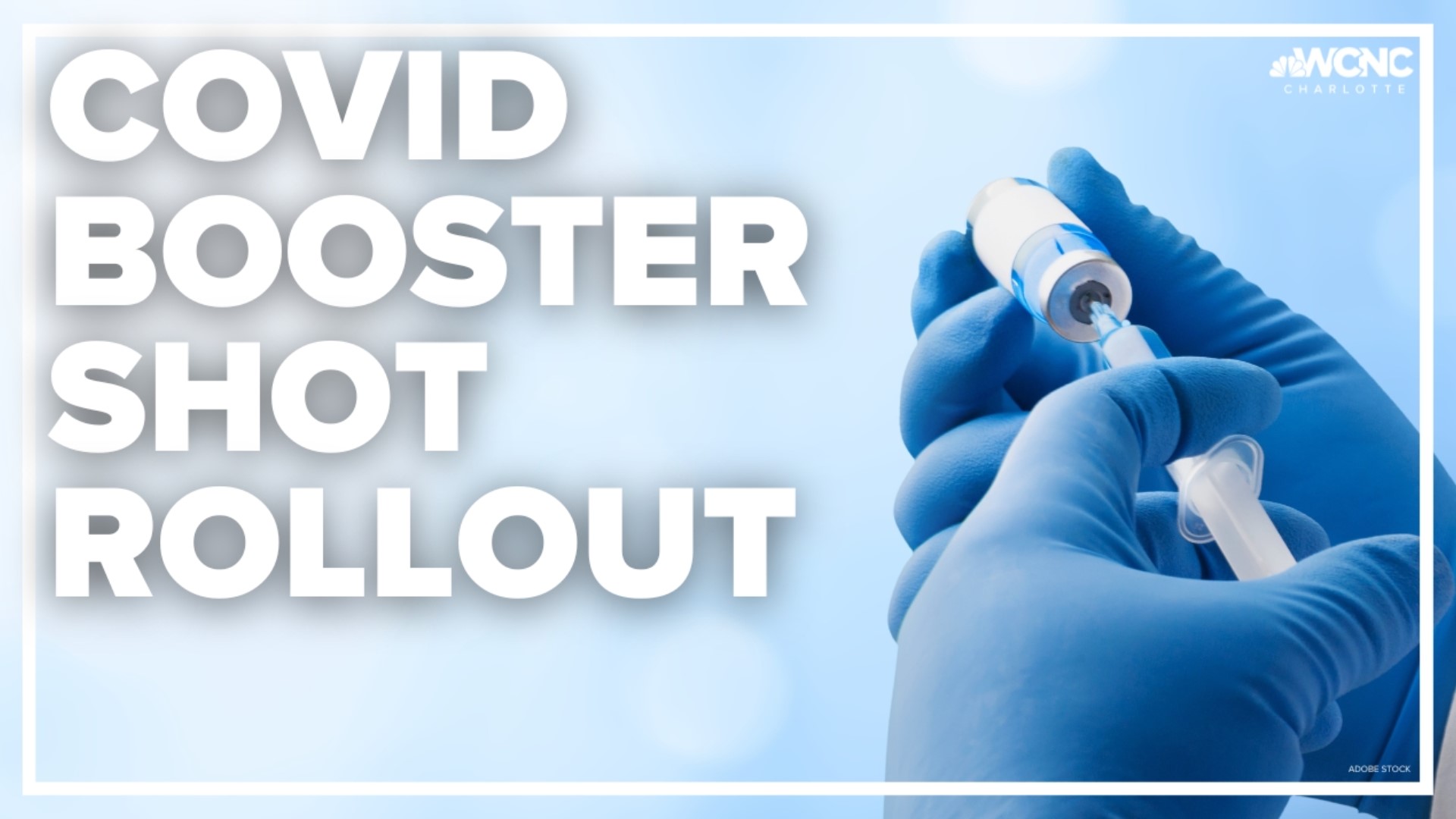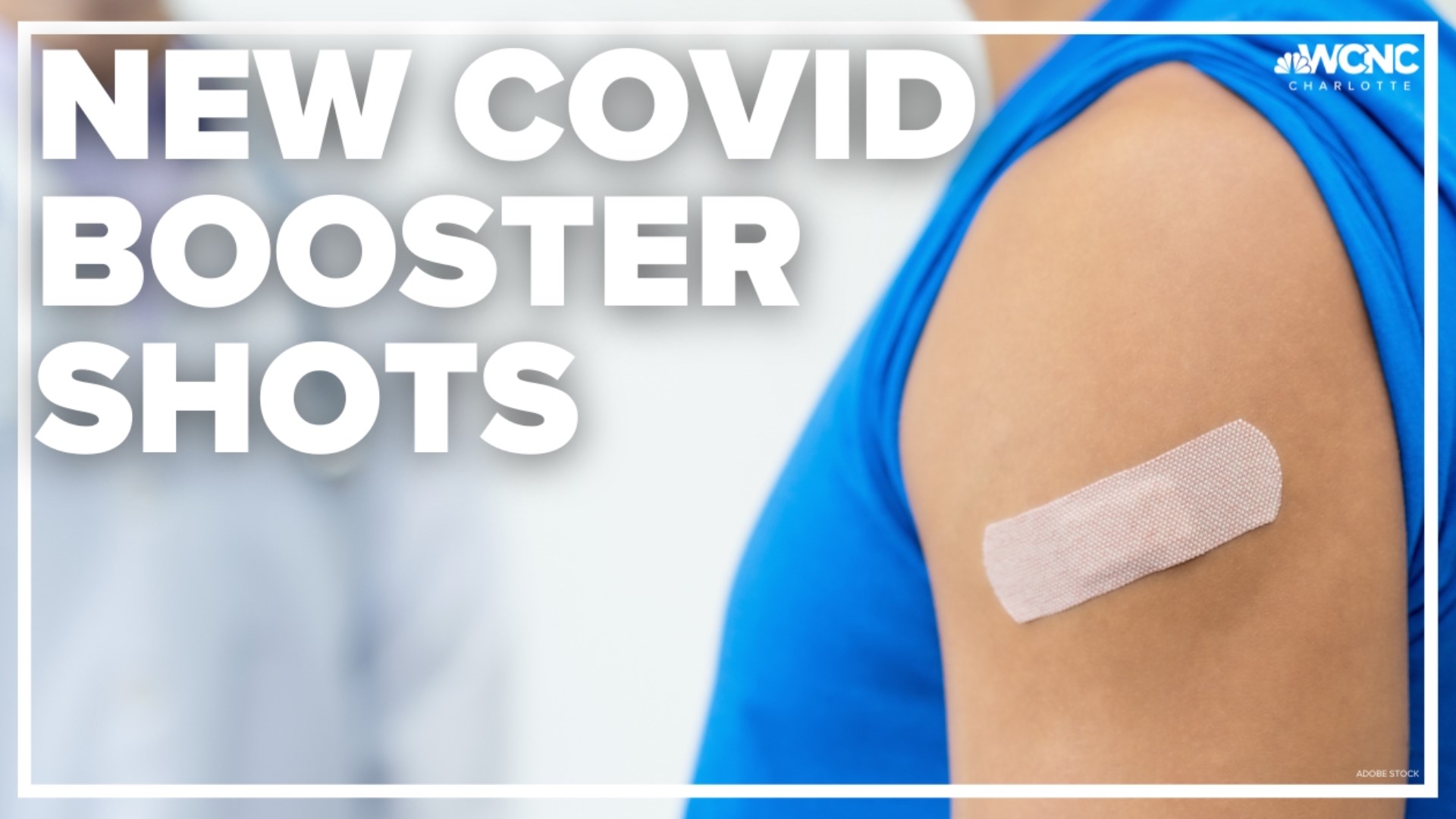CHARLOTTE, N.C. — The first doses of the new bivalent COVID-19 booster shots were given in Charlotte on Wednesday.
StarMed Healthcare got about 400 doses from the health department and opened up appointments Wednesday morning.
“It’s going to address the older versions and newer versions so it’s exciting now that we have them,” Michael Estramonte, the CEO of StarMed, told WCNC Charlotte.
Dr. Raynard Washington, director of Mecklenburg County Public Health, announced the county had received 1,100 doses during a news briefing on Tuesday.
The initial supply sent to the county is small to start, but they expect it to grow in the coming weeks. The shots are recommended for anyone 12 and older who completed an initial COVID-19 vaccine series. The booster can be given two months after a previous dose and three months after a recent COVID-19 infection.
“We’ve already got all the other shots and we’ve had one booster,” Della Hucks said.
She was among the first to get an updated booster at StarMed’s Tuckaseegee Road clinic. Her family has been cautious during the most recent surge in cases.
“We’ve been staying at home,” she said.
Washington noted the shipment of the new shots comes as Mecklenburg County's overall COVID indicators continue to improve, especially in wastewater tracking, hospitalization rates, and case counts.
Data released Wednesday shows statewide, metrics are moving in the right direction. Confirmed cases and hospitalizations slowly decreased from two weeks ago and Mecklenburg County is in the CDC’s medium COVID-19 community level.
What makes the new boosters different?
Last week, both the CDC and the FDA greenlit the updated shots from both Pfizer and Moderna. These boosters are called "bivalent" because they include half of the original vaccine and half of a new one targeting the BA.4 and BA.5 omicron versions.
While the original shots still provide plenty of protection, those vaccines targeted the earlier coronavirus strain that circulated in 2020. The goal of these new boosters is to curb a possible winter surge of the virus.
After the new boosters were approved last week, MCPH paused the distribution of the earlier booster shots. What hasn't stopped is an effort to boost vaccine equity. Community advocates have been going door-to-door to encourage vaccination in minority communities that have been disproportionately impacted by the virus. These advocates have also handed out masks and at-home tests as they hit the pavement.
What does this mean for the future of boosters?
For some people, the bivalent boosters will be their first booster, for others the second or even third. This is a milestone in the pandemic, for the first time the shots have caught up to the virus, and a signal of what the future could be like.
“I think everybody needs to get it,” Hucks said. “It’s going to be like that probably every year. It’s going to be like a flu shot.”
his booster is similar to the annual flu shot; it’s updated to target the most prevalent strain. Doctors think this could be the start of a transition to an annual need for shots.
“We are at least starting to understand better the seasonality of COVID-19 and the frequency that we may need to be receiving these boosters,” Washington said.
For now, the BA.5 subvariant is still the most dominant. The latest data shows it’s causing about 80% of new cases in both Mecklenburg County and the state. But a new variant could take over at any time.
“I would encourage people to start thinking about COVID vaccines somewhat like flu vaccines with the need to be updated as we’ve continued to see variants of the virus swirl through and impact our community," Dr. Katie Passaretti with Atrium Health said. "So, the ability to adapt and update over time likely will continue to be important."



